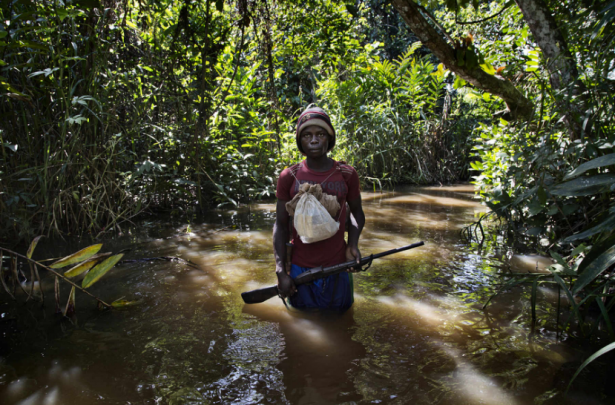Around the world, Sunday is a day for soccer. On Sunday May 25th, three young people in Bangui (the capital of Central African Republic, CAR), were on their way to a match between Muslims and Christians. The match was to be a part of community efforts for reconciliation in a country that continues to suffer terrible brutalities from both Séléka rebels and anti-balaka groups. Those three young Muslims never made it to the match – they were murdered and mutilated in a brutal attack (warning: you may find the content of the article upsetting).

After a few weeks of relative calm (‘relative’ being the key word), tensions have been rising in CAR over the last week – especially in the country’s capital. On Wednesday, around 30 people were killed in an attack on a church. On Thursday, a mosque was sacked. Bangui is on lockdown, with barricades across the city. These events are taking place against a backdrop of violent protests against a 5,000 strong African Union peacekeeping force (there’s also a 2,000 French peacekeeping force in the country), with claims that the forces who are supposed to be protecting citizens are abusing them.
The murder of the young people on their way to a soccer match – what should have been a ray of light in the darkness of tit for tat slaughter – is a particularly vivid example of the dehumanising acts that have characterised the crisis in the country since its outbreak in March 2013. It’s not as simple as defining this as religious tensions. Indeed, many of the anti-balaka have little connection to Christianity (meaning that religious leaders are struggling to exert influence over these groups of young men and quell the violence), and many argue that the motivation of Séléka rebels – who identify themselves as Muslim – has less to do with religion than resources and a feeling of marginalization as the minority in CAR. Approximately a quarter of the population (that’s over one million people) has now been displaced. Of these people, most are currently Muslims who have been targeted by anti-balaka militias who indiscriminately associate them with Séléka rebels.
At Invisible Children, we care deeply about the Central African Republic crisis. We believe that injustice anywhere is the responsibility of humanity everywhere. We’re also connected to the ongoing crisis given that we work and live in Central African Republic – this violence affects our staff, friends and family. The chaos in Central African Republic is also intimately linked to the LRA crisis. Kony is able to take advantage of the lawlessness in much of the country to increase his acts of violence and crippling lootings in the region.
We’re thankful for the ways our supporters have already responded to the crisis. We are continuing to following the situation closely, and will be sure to continue call on you when there are things you can do to keep the country on the global political agenda.
(Picture credit: Marcus Bleasdale)
Think people should hear about this?